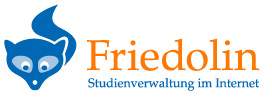| Name des Moduls | [350230] Multi-Scale Simulation and Computational Materials Science I | Bezeichnung des Moduls | MMC W003 |
| Studiengang | [733] - Chemistry of Materials | ECTS Punkte | 5 |
| Arbeitsaufwand für Selbststudium | 75 | Häufigkeit des Angebotes (Modulturnus) | jedes 2. Semester (ab Sommersemester) |
| Arbeitsaufwand in Präsenzstunden | 75 | Dauer des Moduls | 1 |
| Arbeitsaufwand Summe (Workload) | 150 | ||
| Modul-Verantwortliche/r | Prof. Dr Stefanie Gräfe, Dr Zhiwen Pan |
| Voraussetzung für die Vergabe von Leistungspunkten (Prüfungsform) | Exam/test on the content dealt with in the lecture, seminar, and laboratory content (70%); laboratory report (30%) |
| Zusätzliche Informationen zum Modul | If „Multi-Scale Simulation and Computational Materials Science I“ is chosen, then „Multi-Scale Simulation and Computational Materials Science II“ has to be chosen as well. |
| Empfohlene Literatur | Will be recommended at the beginning of the module. |
| Unterrichtssprache | English |
| Voraussetzung für die Zulassung zum Modul | 733 MSc Chemistry of Materials: none |
| Empfohlene bzw. erwartete Vorkenntnisse | 733 MSc Chemistry of Materials: none |
| Verwendbarkeit (Voraussetzung wofür) | 733 MSc Chemistry of Materials: Module required to complete master’s thesis |
| Art des Moduls (Pflicht-, Wahlpflicht- oder Wahlmodul) | 733 MSc Chemistry of Materials: Elective module in „required spezcialisation“ |
| Zusammensetzung des Moduls / Lehrformen (V, Ü, S, Praktikum, …) | Lecture (2 SWS), seminar (1 SWS), laboratory practical (2 SWS) |
| Inhalte | Introduction to the theoretical background of multi-electron systems: in the lectures and exercises, students will deal with basic sets and common ab initio methods, for example Hartree-Fock and higher level methods; introduction to the simulation of larger systems, including semi-empirical methods, and QM/MM calculations. The practical exercises focus on the realization of the theoretical concepts in different quantum chemical programme packages. |
| Lern- und Qualifikationsziele | Basic concepts of various ab initio methods: quantum chemical calculations with applications in molecular structure calculations, chemical boning, molecular orbitals, coordination compounds, kinetics, thermodynamics, and spectroscopy; interpretation of results. |
| Voraussetzung für die Zulassung zur Modulprüfung | Laboratory practical must be completed successfully prior to the exam. |


